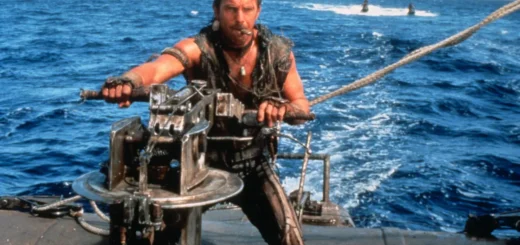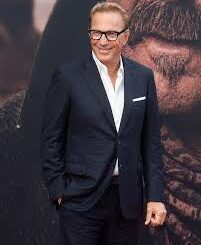“A Surprising Career Trend Confirmed by Kevin Costner’s Lowest-Rated Movie”
Kevin Costner has been a fixture in Hollywood for more than 40 years. Throughout his career, he has starred in some of the industry’s biggest hits, including beloved classics like Field of Dreams and award-winning films such as Dances With Wolves. Yet, despite these notable successes, Costner’s presence on screen hasn’t always translated to commercial or critical triumph.
While Costner has enjoyed many career highs, he has also experienced his share of lows. Films like Waterworld and The Postman are infamous box office disappointments, and even his more recent projects have seen mixed reactions from both critics and audiences. Horizon is a recent example of the unpredictable nature of Hollywood success. However, although setbacks are common for most actors, there’s something unique about the way Costner’s less successful films perform. His lowest-rated movie, the 2002 thriller Dragonfly, demonstrates a striking trend: even when critics dislike his films, audiences often respond far more positively.
Kevin Costner’s Worst-Rated Films Are Often Much More Popular With Audiences
It’s not uncommon for critics and audiences to disagree on a movie’s quality, but Costner’s career highlights this divide more than most. Take Dragonfly, for instance — it holds a mere 7% critic score on Rotten Tomatoes, yet the audience score is a strong 62%, a significant 55-point gap. This isn’t just a one-off case. Throughout his career, many of Costner’s films have been much better received by audiences than by critics, making it clear this is more than coincidence. Even films that didn’t quite earn a “Fresh” rating from audiences still did significantly better than their critical reception suggested. For example, The Postman scored just 14% with critics but earned a respectable 51% from viewers, despite being considered one of Costner’s bigger missteps. This pattern indicates there’s something distinctive about Costner’s appeal that resonates with certain viewers, regardless of critical opinion.
Why Kevin Costner’s Films Tend to Connect Better With Audiences
Although Costner’s critically panned movies may seem unrelated, a common thread runs through many of them. Some of his most critically underwhelming films have, in fact, become cult classics and pop culture staples—think Robin Hood: Prince of Thieves and The Bodyguard. Both were box office successes and have maintained enduring fan bases. This may be due to their emotional, straightforward storytelling style—a traditional approach that may not wow critics but consistently appeals to general audiences.
This suggests that many of Costner’s worst-reviewed movies receive criticism for being too conventional or formulaic. Films like The Guardian, Wyatt Earp, and The War have all been called out by critics for their predictable narratives. Yet, this same formulaic style often works in Costner’s favor with audiences who simply want to be entertained. In this way, Costner could be seen as a populist star whose movies resonate more with the public than with critics.
Not Every Kevin Costner Flop Finds Favor With Audiences
Despite this trend, not every poorly reviewed Costner film is loved by viewers. Movies such as Jack Ryan: Shadow Recruit, The New Daughter, and Waterworld performed worse with audiences than critics, proving that even Costner’s usual audience appeal has its limits.
What’s striking is that, despite occasional failures to win over either critics or audiences, a large number of Costner’s “rotten” movies have still become genuine hits with viewers. This underlines the unique quality of Costner’s appeal as a filmmaker and storyteller. It also suggests that there will always be demand for his style of film.
Though the financial failures of movies like Horizon are well-known, the continued enthusiasm from moviegoers for Kevin Costner’s work explains why he remains a lasting figure in Hollywood. His career may have had ups and downs, but his connection with audiences has kept him relevant for decades.


